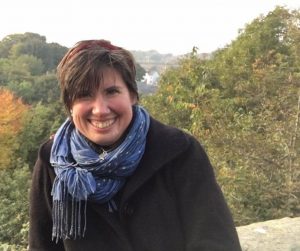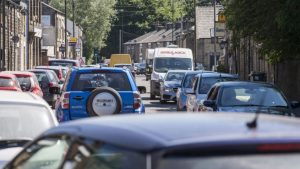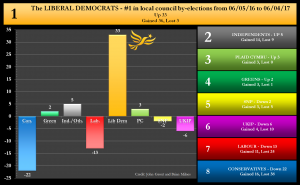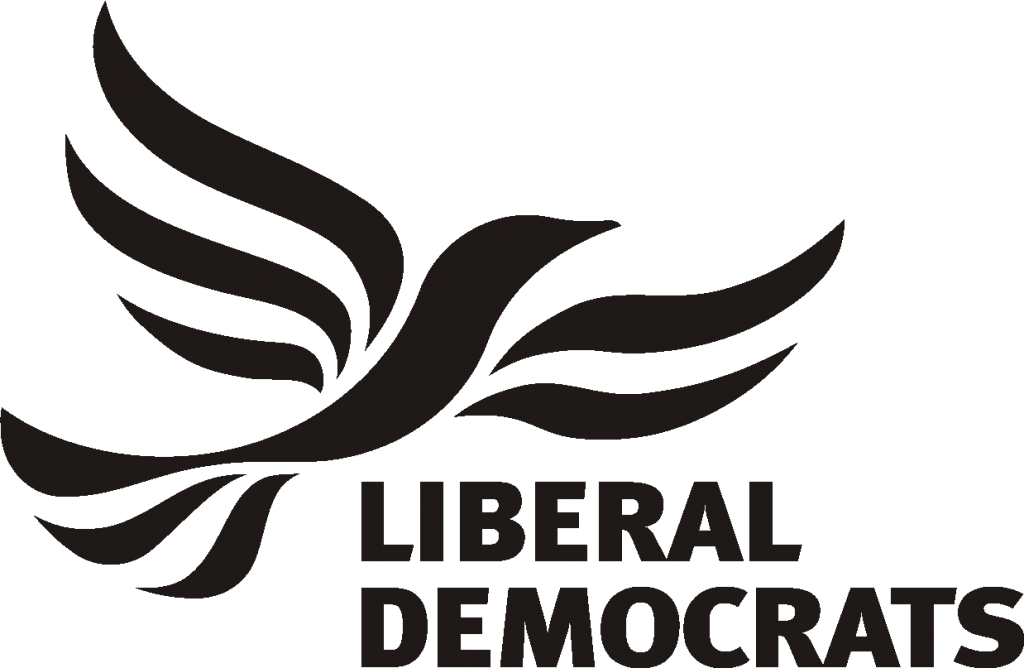Darcey Gillie – Challenging the status quo
Darc ey Gillie was born and brought up in a milltown in the north-eastern US. Her father was a self-employed carpenter and her mother was a stay-at-home mum. Darcey grew up learning the carpentry trade, and even now, 30-odd years later, she still goes to work with her dad on Saturdays when home visiting.
ey Gillie was born and brought up in a milltown in the north-eastern US. Her father was a self-employed carpenter and her mother was a stay-at-home mum. Darcey grew up learning the carpentry trade, and even now, 30-odd years later, she still goes to work with her dad on Saturdays when home visiting.
Through a combination of scholarships, loans and part-time jobs as a butcher, fish-cutter, baker and university security officer she managed to get herself through university. After a couple of years managing a travel bookshop, Darcey came to the UK to do postgraduate study.
She met her husband, who’s from Derby, in Scotland and they have been married for 16 years. She is a fully-qualified secondary geography teacher and a qualified careers consultant. In the UK, Darcey has lived, worked and studied in Aberdeen, the Isle of Skye, Ullapool, Edinburgh, Derby and Nottingham but has finally found her home in Glossop. Standing for local councillor is her way of giving back to a community that has made her feel so welcome.
Stephen Worrall – Committed to our area
Born at Stepping Hill in 1990 Stephen has lived almost his entire life in Glos sop. Growing up in Hadfield and Simmondley, attending Simmondley Primary School and Glossopdale Community College and now living in Charlesworth with his long term girlfriend.
sop. Growing up in Hadfield and Simmondley, attending Simmondley Primary School and Glossopdale Community College and now living in Charlesworth with his long term girlfriend.
He obtained a Masters in Chemistry and then a PhD in Nanoscience from the University of Manchester, spending 14 months working for one of the largest chemical companies in the world, but still stayed in touch with Glossop, working at Woolworths and Card Factory.
Now a Researcher in Climate at the University of Manchester he also takes science outreach demonstrations out to local schools. Recently he has been able to persuade his superiors to allow him to bring the demonstrations out to Glossop schools for the first time!
Our plan for Glossop and Charlesworth
It’s all about the infrastructure!
If we want to preserve the unique character, heritage, and culture of Glossop, whilst preparing our community for a successful future, we can’t afford to be conservative.
Residents that Darcey and Stephen speak with have serious, genuine concerns about infrastructure. Whether it is planning, housing, public safety, health or education they rarely hear or aware of what the Council is doing to address their concerns and, worse still, often feel these concerns are ignored. Darcey and Stephen pledge:
“If elected on May 4th we will be meeting, listening and talking to people to make sure your voice is heard and listened to in the Council chamber– as well as communicating to you what the Council is thinking and doing. ”
Traffic
We will keep the pressure on the decision makers in Whitehall to ensure that Glossop gets the bypass that it has needed for time out of mind! We will also hold residents meetings to find out what solutions local residents want to traffic problems in there area.
Planning
We will make sure that local residents voices are properly heard in the planning process for developments both big and small. We will also feedback to residents so that they are kept fully aware of what is going on in County Hall.
Public Transport
We will fight any further reductions to our already decimated bus service and seek to bring back cut services where there is a clear demand from local residents to do so.
A Liberal Democrat manifesto for our County
Derbyshire County Council continues to face significant financial pressures which severely limit what it can do. As central government funding is reduced further, DCC is faced with the problem of cutting more of the services it provides.
Yet Labour led DCC has continued to waste money. For decades DCC continued to spend £500,000 each year choosing to have branded orange vehicles rather than standard white ones. And it took 3 1/2 years of this last council to decide that was a waste of your money.
Derbyshire Liberal Democrats are always prepared to ask the difficult questions and to take the necessary decisions to ensure that DCC can continue to provide the essential services that residents need. We need to look at new ways of operating and raising revenue.
Labour continue to be hamstrung by standing up for Trade Union interests and the Conservatives for big business.
In contrast, Derbyshire Liberal Democrats will stand up for the interest group which really matters – the residents of Derbyshire themselves. We will show what we can achieve if we work together, rather than the usual Punch-and-Judy show between the Tories and Labour at County Hall.
Liberal Democrats will seek to bring a strong element of common sense to the council chamber. The best interests of Derbyshire are poorly served by excessive party political dogma and the present system of centralised, autocratic decision making. It’s time for us all to work together for you.
To see our manifesto in full please visit tinyurl.com/derbysld
What have the Liberal Democrats ever done for me?
When we had a chance to influence policy in Westminster we delivered for High Peak:
- An £800 tax cut for 39,900 local residents.
- £6,658,000 extra for our schools.
- 3,850 extra apprentices learning a
trade in our area.
- Free school meals for 3,000 of our children.
- Record state pension rises for local pensioners.
Vote Liberal Democrat to give us the chance to influence policy in County Hall and deliver even more!
- A reduction in the amount of money that Councillors receive, with the money saved put into providing services.
- Protection of family support services in Children Centres.
- Speed up the repair of potholes, thus saving the £344,000 DCC has spent on pothole compensation claims for reinvesting in frontline services.
Why voting Liberal Democrat is NOT a wasted vote!
The Liberal Democrats have been the most successful party in the last 12 months in by-elections up and down the country with a net gain of 36 seats!

From Brexit voting Sunderland to Remain voting Richmond Liberal Democrat candidates have been winning, lets make that the case in Glossop and Charlesworth as well!








